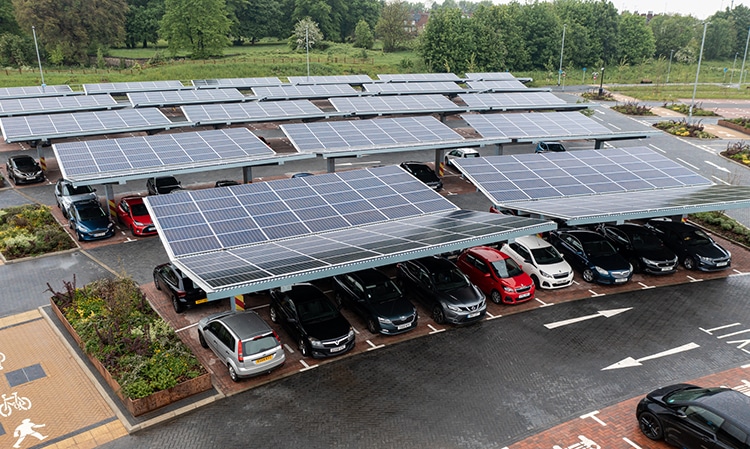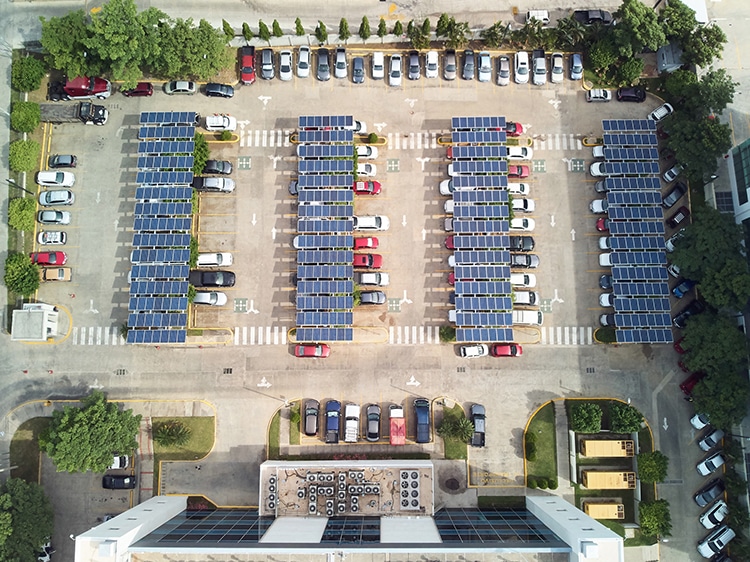
Photo: TEAMJACKSON/Depositphotos
“They paved paradise and put in a parking lot,” lamented Joni Mitchell in her 1970 hit “Big Yellow Taxi.” A song dedicated to appreciating nature before it’s gone, the words are as relevant 50 years later as when it was first sung. With much of the world heavily dependent on cars, parking lots fill the landscape around the world. Dark pavement absorbs the Sun’s rays, creating heat islands that trap urban heat. As long as the world has more cars, we will have parking lots. However, a new French law seeks to harness these hot spots by mandating large lots with solar panel roofs.
The law, which was recently passed by the French Senate, is part of President Macron’s initiative to expand the supply of wind and solar energy in France. Starting July 1, 2023, lots with between 80 and 400 spaces will have five years to add solar panels as a “roof” over the parking lots. Lots with more than 400 spaces must be covered with solar panels for three years. At least 50% of the surface of these large lots must be covered. The largest transit parking lots and shopping areas will generate the most energy, while historic areas and long truck lots are left out of the new initiative.
The parking lot panels are expected to generate 11 gigawatts of energy. This is equivalent to the power of 10 nuclear reactors. The government is also considering installing solar panels in other unused or creative spaces. SNCF—the French railway system—plans to load their stations with panels as well. In 2050, the government plans to implement 50 new wind farms to increase the country’s power. While installing solar panels may be a big undertaking — and many of the details have yet to be hammered out — it’s sure to be a step that would make Joni Mitchell and any environmentalist smile.
A new French law will require all parking lots for 80 or more cars to have solar panels on top of the parking lots.

Photo: DIMARIK/Depositphotos
h/t: [Electrek]
Related Articles:
Take Your Broken Electronics to the “Repair Cafe” to Save Money and the Environment
Sir David Attenborough Makes “Urgent Final Plea” for Future of Our Planet
Student Designs 3D-Printed Robot Fish That Filters Microplastics From Water
Bus Stops Across Europe Get “Living Roofs” To Help Bees Thrive
